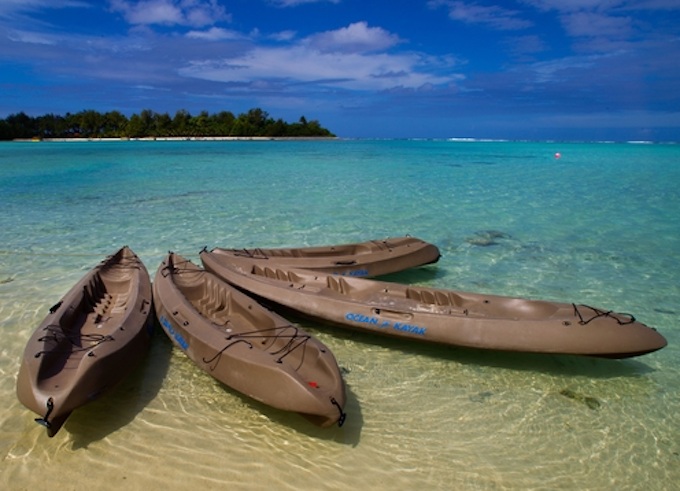
PACIFIC PANDEMIC DIARY: By Sri Krishnamurthi, contributing editor of Pacific Media Watch
The collapse of tourism across the world in the face of the covid-19 coronavirus pandemic could plunge thousands of people into poverty in the Pacific, predicts a new International Labour Organisation report.
Thousands of jobs in countries like Fiji, Samoa and Tonga are dependent on visitor numbers, which have fallen to zero.
READ MORE: Trump resumes attack on China over coronavirus

The crash will have serious impacts on many island economies.
“Economies such as Fiji, the Maldives and Tonga are heavily dependent on tourism, with shares of tourism in total exports reaching 52, 84 or 47 percent respectively,” the report says.
“In many Asia and Pacific countries, more than three in four workers in the tourism sector are informal jobs, leaving them especially vulnerable to the negative impacts of the covid-19 crisis.
“Informal sector jobs are characterised by a lack of basic protection, including social protection coverage.”
Thousands of jobs lost
Thousands of jobs have already been lost, with resorts and hotels closing in Fiji, the Cook Islands and Samoa, countries where tourism makes up more than half the economy, reports RNZ News.
And the ILO says that with the pain brought by the pandemic expected to be long-lasting, workers with previously stable incomes are sliding into poverty.
Many of these people are also informal workers, with few protections if their jobs fall through.
They don’t have a social welfare system to fall back on, unlike New Zealand or Australia.
The ILO says few Pacific countries have the money to fully cope with the coronavirus response, and solidarity from the likes of Australia, New Zealand and the World Bank will be vital.
The economies of the Cook Islands, Fiji, Palau, Samoa, and Vanuatu are the Pacific countries likely to feel the brunt of the covid-19 pandemic most, according to a separate new report by the Asian Development Bank (ADB) earlier this month.
Assuming even just a three-month interruption in travel and trade, the tourism-based economies are all expected to contract this year, with Tonga forecast for zero growth, according to the latest Asian Development Outlook (ADO) 2020, ADB’s flagship economic publication.
Pacific contraction
Growth of ADB’s Pacific developing member countries (DMCs) in 2020 is forecast to contract by 0.3 percent, as the covid-19 pandemic directly impacts on tourism and trade flows, while also affecting construction activity.
The recovery in 2021, at 2.7 percent, will rely on improvements in tourism numbers, the commencement of delayed construction projects, and the resumption of labour mobility and cross-border trade
“While most Pacific countries moved quickly and decisively to restrict travel from a fast-growing list of COVID-19 affected countries, such restrictions can come with a high economic cost,” says ADB director-general for the Pacific Leah Gutierrez in a statement.
“ADB is committed to supporting the Pacific cope with the covid-19 pandemic and help address immediate needs.
“We are providing grant financing and support to procure needed medical goods and equipment in selected countries.
“We are also working with Ministries of Finance to assess their budget support needs and coordinating on these closely with other development partners. Strengthening social protection will be key to safeguarding vulnerable groups during this downturn and will also help support the eventual recovery process.”
Economic growth in Papua New Guinea in 2019 was 4.8 percent, tempered by the deferral of large investment projects.
Construction decline
Agriculture, forestry, and fisheries continued to expand, but construction is estimated to have declined. The ADO 2020 says the government faces important challenges in managing public debt.
The covid-19 pandemic is an added shock for the PNG economy and is already negatively affecting commodity prices. Growth in PNG is expected to remain weak at about 0.8 percent in 2020, rising to 2.8 percent in 2021, it said in its statement.
After uninterrupted growth for the past nine years, growth in Fiji is estimated to have slowed to 0.7 percent in 2019, a hangover from the effects of cyclones Winston and Harold.
Fiji’s economy is projected to further decline by 4.9 percent in 2020 due to the covid-19 pandemic.
The tourism and air transport sectors are expected to be the worst hit. The report suggests the government must strengthen and empower the private sector to innovate, diversify, and drive the economic recovery after covid-19, while finding the right balance between investing in climate resilient
infrastructure, limiting debt exposure, and building fiscal buffers. As a priority, Fiji needs to improve its business and investment climate, while encouraging business innovation. The report says growth will improve in 2021 and reach about 3.0 percent.
Economic growth in Solomon Islands is expected to slow to 1.5 percent in 2020, slightly down from 2.6 percent in 2019, as exports fall because of the covid-19 pandemic.
Continuing logging decline
Growth is expected to recover to 2.7 percent in 2021 as construction on large infrastructure projects offsets a continuing decline in logging. ADO 2020 says that with the logging sector contributing less to growth over the longer term, reforming the tax system will become critically important to ensure that it supports broad-based growth in other areas.
Vanuatu’s economic growth is forecast to contract from 2.8 percent in 2019 to -1.0 percent in 2020 as travel restrictions arising from covid-19 undermine tourism. Growth should recover and reach 2.5 percent in 2021. The report notes that with more workers accessing labour mobility schemes, policies must ensure that the benefits are both broadly enjoyed and sustainable.
The covid-19 pandemic will severely hit tourism, with the South Pacific economies the most affected.
Growth and fiscal outcomes will be undermined in the Cook Islands, Samoa, and Tonga. The Cook Islands’ economy is expected to contract from 5.3 percent in 2019 to -2.2 percent in 2020 due to a collapse in tourist arrivals.
Growth is forecast to recover in 2021 to 1.0 percent. Samoa’s economy is expected to contract from 3.5 percent in 2019 to -3.0 percent, before slightly rebounding to 0.8 percent in 2021.
Tonga, where economic growth was 3.0 percent in 2019, will see zero growth in 2020 due partly to a plunge in visitor arrivals. Growth will likely reach 2.5 percent in 2021, buoyed by tourism recovery and faster government implementation of rehabilitation and recovery from Cyclone Gita, says the ADB report said.
More covid-19 cases
Meanwhile, Guam has recorded more positive covid-19 results, taking cases there to 144 and five people have died from the virus in the US territory.
In the curious case of the nuclear-powered aircraft carrier USS Theodore Roosevelt, now docked in Guam there were 840 cases, but the origins of covid-19 remain a mystery.
In New Zealand, Director-General of Health Dr Ashley Bloomfield announced today that there were three new cases, two confirmed and one probable.
The new national total of confirmed and probable cases is 1472.
And, as New Zealand moved to alert level 3, the queues at MacDonalds and other takeaway sites after four weeks of lockdown were something to behold.
In the Northern Marianas they had 14 cases and two deaths, New Caledonia 18 cases, French Polynesia 58 cases, Timor-Leste 24 cases and Hawai’i has 607 cases with 16 deaths.












































